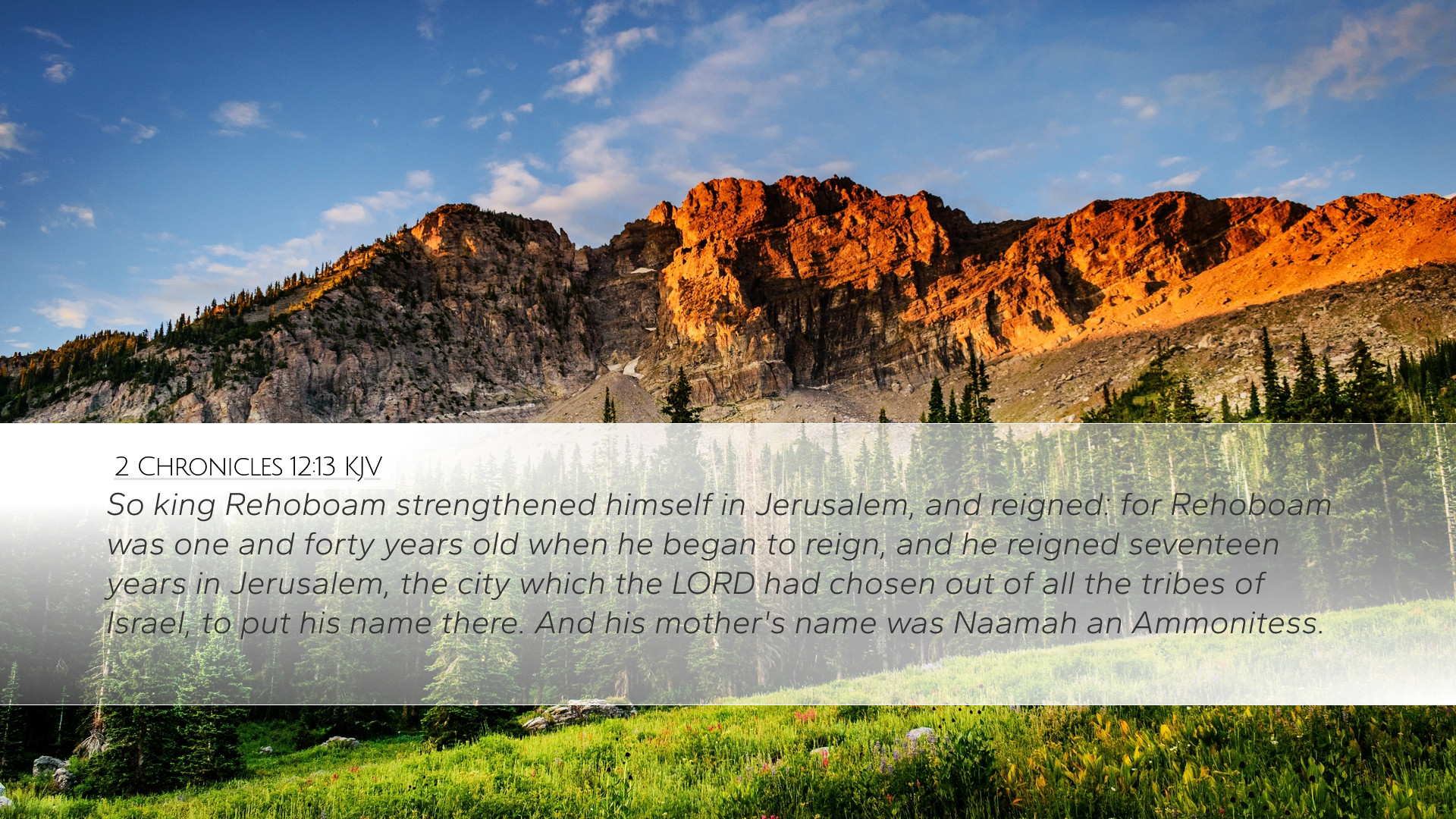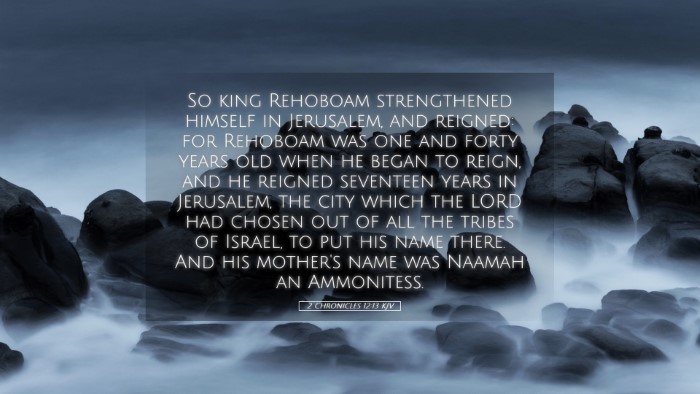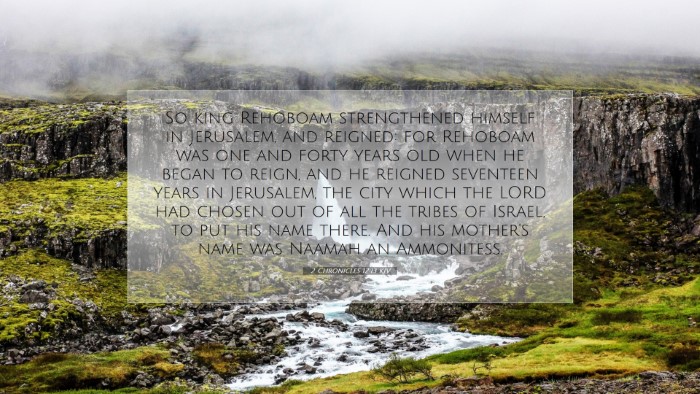Commentary on 2 Chronicles 12:13
2 Chronicles 12:13 states: “So King Rehoboam strengthened himself in Jerusalem and reigned. Now Rehoboam was forty-one years old when he became king; he reigned seventeen years in Jerusalem, the city which the LORD had chosen out of all the tribes of Israel, to put His name there. His mother’s name was Naamah, an Ammonitess.”
Introduction
This passage marks a crucial point in the reign of Rehoboam, the son of Solomon and the grandson of David. It highlights both the establishment of his kingship and the consequences of his actions in the context of divine covenant with Israel.
Contextual Overview
Rehoboam's reign is characterized by the significant events surrounding the division of the kingdom. After Solomon's death, the people sought relief from the heavy burdens imposed by his policies. Rehoboam, failing to heed wise counsel, alienated many of his subjects, leading to the fragmentation of the kingdom into Judah and Israel.
Analysis of the Verse
-
Strengthening in Jerusalem:
Henry notes that Rehoboam's decision to strengthen himself in Jerusalem symbolizes his initial attempt to affirm his leadership. By choosing to remain in Jerusalem, he aligned himself with the holy city, which represented God's presence and promises.
-
Age and Duration of Reign:
Rehoboam was 41 years old at the time of his accession, and he reigned for 17 years. Clarke emphasizes the significance of his age and the relative shortness of his reign, reflecting the turbulent times and challenges he faced.
-
The City of Jerusalem:
Barnes points out the importance of Jerusalem as the city chosen by God to place His name. This affirms its status as central to the people's worship and identity, anchoring Rehoboam's reign in the covenantal reality of his lineage from David.
-
His Mother Naamah:
Rehoboam’s mother, Naamah, an Ammonitess, signifies the influence of foreign nations in the kingdom. Henry warns that such connections can lead to spiritual compromise and idolatry, reminding leaders of the dangers of associating with ungodly influences.
Theological Reflections
Rehoboam's reign, though marked by initial strength, was ultimately a cautionary tale about the consequences of rejecting wise counsel and the importance of divine guidance in leadership. The juxtaposition of human authority with divine sovereignty is a recurrent theme, illustrating that true strength comes from submission to God.
Practical Applications
- Leadership and Counsel:
Pastors and leaders should seek wisdom from godly counsel, embracing humility to recognize their limitations and the need for divine guidance.
- Understanding the Importance of Jerusalem:
Recognizing our 'Jerusalem'—the place or community God has set us in—can help affirm our identity and purpose within God's plan.
- Evaluating Influences:
We must evaluate the influences in our lives and ministries, ensuring they align with God’s purposes and not lead us astray into compromise.
Conclusion
2 Chronicles 12:13 serves as a pivotal reminder for leaders about the importance of sound leadership grounded in divine wisdom. Rehoboam’s reign urges us to submit to God's authority and seek His guidance in all aspects of our lives. As we study this passage, may we be inspired to pursue integrity, wisdom, and a deep reliance on God, ensuring our leadership reflects His character and serves His purposes.


